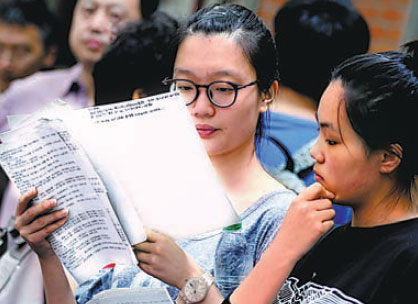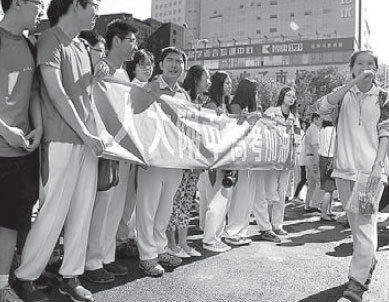Gaokao gives students overseas opportunities
Updated: 2015-06-08 07:46
By Zhao Xinying and Luo Wangshu(China Daily)
|
||||||||
All of the 9.42 million Chinese students who took the gaokao, or national college entrance exam, on Sunday, know that the results will decide which domestic university they can attend.
However, in recent years, the test score can also help them gain admission to some universities overseas.
Dozens of countries and regions, including Australia, Italy and the United States, have used gaokao test scores for admission criteria.
"What we are willing to do, and have already started taking action on, is to urge overseas universities to recognize gaokao test scores," Yu Jihai, deputy director of the International Cooperation and Exchange department of the Ministry of Education, said last month.
In May, the University of San Francisco announced that it would admit Chinese students on the basis of their gaokao test scores and a one-on-one interview without other admission requirements. This means Chinese students will have opportunities to study in the US "immediately - without spending an extra year preparing for IELTS, Toefl or SAT tests," said Paul Fitzgerald, president of the university.
"Many studies have shown that the SAT is not a very good predictor of how well students will do at a university. We are aware of the many criticisms that have been made of the gaokao, but it has the advantage of being what educational experts call a 'criterion-referenced' exam: It tests whether students are able to master a given body of knowledge, as well as their ability to work hard and consistently," Fitzgerald said on the university's website.
The University of Western Sydney in Australia started accepting Chinese high school graduates in its undergraduate program on the basis of gaokao scores in 2009.
Eliza Chui, education consul at the Australian consulate general in Shanghai, said it has been more than a decade since the Australian government first thought about recognizing gaokao scores.
"In mid-2000, the government noticed the number of Chinese undergraduate students was increasing, so research was done on the best way to accept students from China," Chui said.
But Zhang Weiyong, director of the US division of Golden Orient, an overseas study consultancy in Beijing, said there are few Chinese students applying to study overseas after their gaokao test scores are available, as very little time is left to deal with issues such as school applications and visa interviews.
"Generally, Chinese students who want to study at universities in the US, especially some prestigious ones, would start preparing for the application at least a year in advance, so that by the time of the gaokao they would have received admission letters from their dream schools and therefore would skip the domestic exam," Zhang said.
In Zhang's eyes, only two types of Chinese students would try to apply for universities overseas after their gaokao scores are available: excellent ones who accidentally failed the exam so that they can't gain admission to their dream domestic universities or majors, and those with weak academic performances during high school and low gaokao scores.
Under such circumstances, Zhang suggested students make the decision of whether to apply for universities overseas with gaokao scores according to their own needs and conditions.
"After all, there are not many universities - at least in the US - that admit Chinese students based on their gaokao results," Zhang said.
"Not all the students would like to surrender to the limited choice."
However, Chu Zhaohui, a senior researcher at the National Institute of Education Sciences, said it's difficult for gaokao results to become a major part of the criteria for large numbers of universities overseas, especially some of the most selective ones.
"Top universities across the world usually adopt a comprehensive, diversified and scientific approach to evaluate students," he said.
"I'm afraid that the results of Chinese gaokao, which has been criticized for its dull and unscientific way of measuring students' academic performances and abilities, will not be widely accepted."
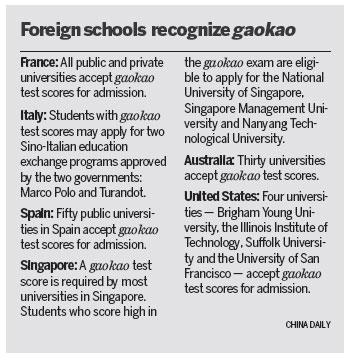
|
Students make their final preparations before entering the classroom for the national college entrance exam in Shanghai on Sunday. Liu Ying / Xinhua |
|
Students pose for photos before they take the gaokao in Beijing on Sunday. Wang Zhuangfei / for China Daily |
(China Daily 06/08/2015 page1)
- Rescuers enter Eastern Star hull in search efforts
- China mourns Yangtze shipwreck victims as search continues
- 9.42 million students sit national college entrance exam
- Students prepare to take national college entrance exams
- TV giants suspend shows for ship wreck mourning
- China, Japan reopen finance talks after delay over sour relations

 Rescuers mourn victims on seventh day since Eastern Star disaster
Rescuers mourn victims on seventh day since Eastern Star disaster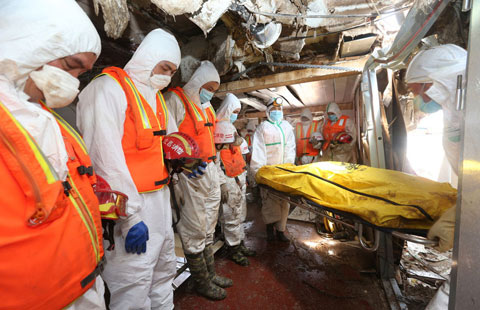
 Rescuers enter Eastern Star hull in search efforts
Rescuers enter Eastern Star hull in search efforts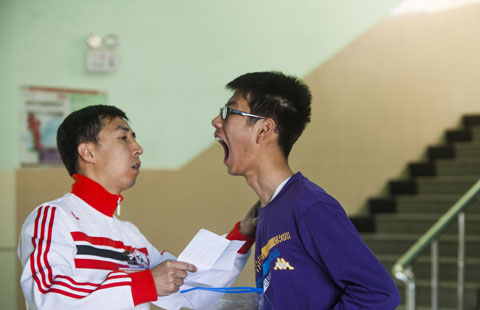
 Gaokao held across China
Gaokao held across China
 Man sues actress for staring at him
Man sues actress for staring at him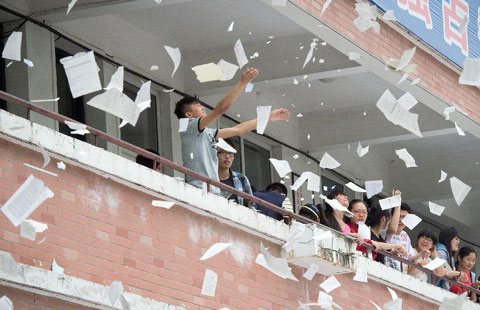
 Students prepare to take national college entrance exams
Students prepare to take national college entrance exams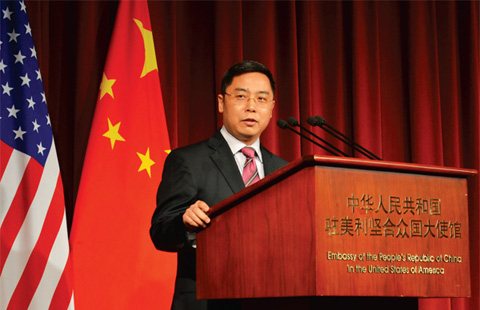
 Across America (May 29- June 4)
Across America (May 29- June 4)
 Operation underway to turn the ship over
Operation underway to turn the ship over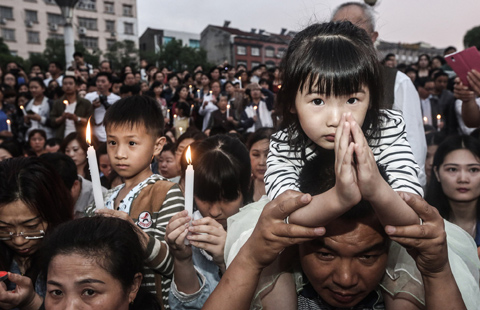
 Prayers held for ship passengers
Prayers held for ship passengers
Most Viewed
Editor's Picks

|

|

|

|

|

|
Today's Top News
Heavyweight Zhang wins unanimous decision
China mourns Yangtze shipwreck victims as search continues
China signs $50m agreement with FAO to support developing countries
9.42 million students sit national college entrance exam
Death toll jumps to 396
as hopes of finding any
survivor in cruise fade
China, Japan reopen finance talks after delay over sour relations
Hacking claim isn't responsible, Beijing says
Startups return to China to battle pollution
US Weekly

|

|
